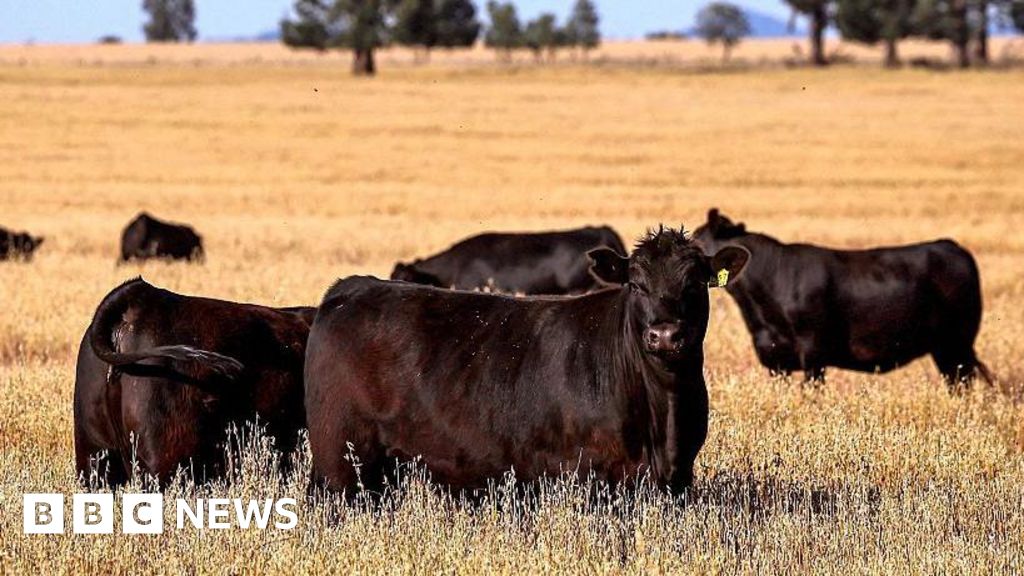In a significant shift aimed at revitalizing trade relations, Australia has lifted its ban on imports of US beef, a decision that resonates deeply amid rising tensions with the Trump administration. This
Did You Know
Your taste buds have a lifespan of about 10 to 14 days, after which they are replaced.
?
AD
bold move underscores Australia’s efforts to soften the impending blow of tariffs proposed by President Trump while maintaining its strict biosecurity laws. With Agriculture Minister Julie Collins emphasizing that Australia is satisfied with the measures implemented by the US to handle biosecurity risks, the government appears to be navigating a delicate balance between international trade interests and domestic agricultural priorities.
The decision is not merely about the beef itself; it signifies a larger strategy to mend and enhance Australia’s trading partnerships in an increasingly complex global landscape. By opening its borders to US beef, Australia aims to appease the US government and secure its position as a vital player in the global beef market. This opportune moment allows Australian beef producers to capitalize on new market openings, presenting them with the potential for increased sales and profitability, particularly at a time when limited stock has caused prices to soar.
Ultimately, this maneuver reflects Australia’s willingness to adapt its trade policies in response to external pressures while safeguarding its own economic interests. As the world watches closely, the lifting of the import ban not only aims to bolster trade relations with the United States but also illustrates the complexities inherent in navigating international economics in an era defined by protectionism and bilateral negotiations. Australia’s strategic approach underlines the importance of collaboration and flexibility in the face of evolving geopolitical dynamics.
Q&A (Auto-generated by AI)
What led to the US beef import ban?
The US beef import ban by Australia was primarily driven by concerns over biosecurity. Australia has stringent regulations to protect its livestock from diseases, particularly Foot-and-Mouth Disease (FMD). The ban was implemented to prevent potential contamination from imported beef, ensuring the health of Australia's agricultural sector.
How do tariffs impact trade relations?
Tariffs are taxes imposed on imported goods, which can affect trade relations by raising the cost of foreign products. In this case, Trump’s tariffs on Australian beef created tension, as they were seen as a barrier to trade. By lifting the import ban, Australia aimed to improve relations with the US and mitigate the impact of these tariffs on bilateral trade.
What biosecurity measures does Australia have?
Australia's biosecurity measures include strict regulations on the importation of livestock and animal products. These measures are designed to prevent the introduction of diseases that could devastate local agriculture. For instance, any imported beef must meet specific health standards, and inspections are conducted to ensure compliance with these regulations.
What are the economic effects of lifting the ban?
Lifting the ban on US beef imports is expected to have mixed economic effects. On one hand, it could lead to increased competition in the Australian market, potentially lowering prices for consumers. On the other hand, it may benefit Australian beef producers by allowing them to access a larger export market, especially if US tariffs are reduced, enhancing their profitability.
How has Trump influenced Australian trade policy?
Trump's administration significantly influenced Australian trade policy through the imposition of tariffs and demands for trade concessions. His focus on bilateral trade agreements prompted Australia to reconsider its import restrictions on US beef as a strategy to strengthen ties and negotiate favorable terms, reflecting a broader trend of aligning with US trade priorities.
















